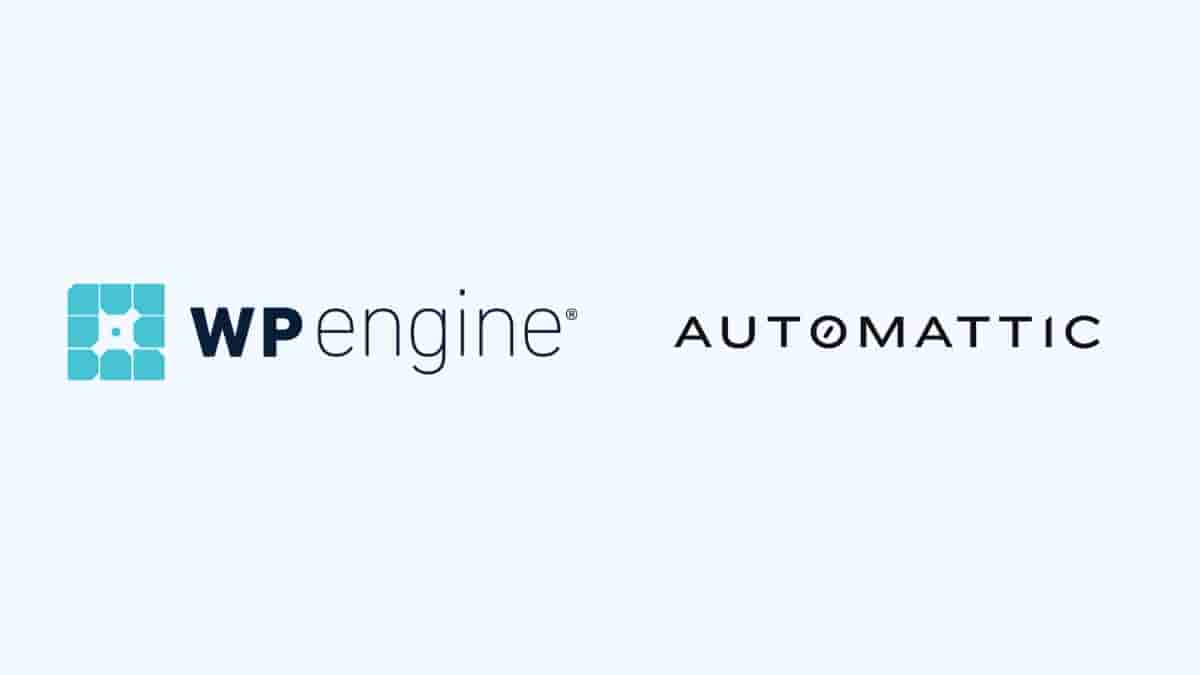Automattic vs. WP Engine: The legal battle over WordPress and WooCommerce trademarks

A significant dispute has emerged between two major players in the WordPress ecosystem: Automattic Inc., the parent company of WordPress.com and WooCommerce, and WP Engine, a popular web hosting and digital experience platform. The conflict revolves around allegations of trademark violations, intellectual property misuse, and competitive practices that both companies claim are unfair.
Automattic’s allegations against WP Engine
Automattic Inc., the owner of the WordPress and WooCommerce trademarks, has issued a cease-and-desist letter to WP Engine, accusing the company of unauthorized and widespread use of its trademarks, which Automattic claims has led to consumer confusion and unjust enrichment of WP Engine.
In the letter, Automattic’s legal representatives from Perkins Coie LLP stated that WP Engine has been using WordPress, WooCommerce, and related trademarks without proper licensing or permission, creating the false impression that WP Engine is associated with or endorsed by Automattic. Automattic argues that this has diluted its brand and misled consumers into believing that WP Engine operates as an official arm of WordPress.
Automattic further alleges that WP Engine has built its business model, generating over $400 million in annual revenues, on the unlicensed and unauthorized use of its intellectual property. The company claims this has allowed WP Engine to compete unfairly while benefiting from the goodwill and reputation Automattic has built with its well-known trademarks.
Automattic has demanded that WP Engine immediately cease all unauthorized uses of the WordPress and WooCommerce trademarks. The company has also requested an accounting of WP Engine’s profits tied to these unauthorized uses, threatening legal action if WP Engine fails to comply. Automattic believes it is entitled to damages, attorneys’ fees, and a percentage of WP Engine’s revenues, suggesting that WP Engine’s use of their trademarks has unfairly boosted its earnings by millions.
WP Engine’s allegations
WP Engine, however, has not taken these allegations lightly. The company, which has long positioned itself as one of the premier hosting platforms for WordPress sites, argues that Automattic’s legal action is a tactical move designed to stifle competition.
WP Engine has raised concerns about Automattic’s near monopoly over the WordPress ecosystem, which it claims is being enforced by aggressive legal tactics. WP Engine states that Automattic’s contributions to open-source WordPress are not equivalent to its control over the platform and its related businesses, including WooCommerce. WP Engine contends that its contributions to the WordPress community, although smaller in scale, are significant and should not be overshadowed by Automattic’s larger presence.
WP Engine further argues that its use of the WordPress and WooCommerce trademarks is in line with industry standards, highlighting that Automattic has historically maintained a cooperative relationship with various third-party platforms using the WordPress trademarks. According to WP Engine, Automattic’s current actions represent a sudden shift in its stance aimed at quashing competition rather than protecting its trademarks.
WP Engine’s legal team contends that Automattic is overreaching by trying to claim sole control over the WordPress brand, which is a free and open-source platform with contributions from developers and businesses around the world. WP Engine has asserted that the accusations of misleading consumers are unfounded, stating that its platform clearly distinguishes itself from Automattic’s services.
What’s at Stake?
At the heart of the dispute is control over the branding and intellectual property tied to WordPress and WooCommerce, two of the most widely recognized and used names in website hosting and e-commerce platforms. Automattic’s position as a leader in the WordPress ecosystem gives it significant leverage, but WP Engine, as a major hosting platform, also holds considerable influence.
The outcome of this legal battle could have wide-reaching implications for third-party businesses operating in the WordPress space. Many companies, like WP Engine, offer hosting, plugins, and services that complement WordPress, often utilizing the trademarks in their marketing and operations. A ruling in Automattic’s favor could lead to tighter restrictions on the use of WordPress-related trademarks, affecting numerous businesses in the ecosystem.
On the other hand, if WP Engine successfully defends itself, it could set a precedent allowing greater freedom for companies to use the WordPress and WooCommerce brands in their marketing and services without the need for strict licensing agreements from Automattic.
Looking Ahead
As this legal conflict unfolds, the broader tech and WordPress communities are watching closely. Automattic’s aggressive pursuit of trademark control could either solidify its dominance or raise questions about its role in what is ostensibly an open-source platform. For WP Engine, this dispute is about more than just trademark use—it’s about defining the competitive landscape for businesses operating in the WordPress ecosystem.
Both companies have expressed a willingness to settle the matter out of court, possibly through a licensing agreement or other compromise. However, if negotiations fail, the dispute may escalate into a lengthy and costly legal battle, with the potential to reshape the future of the WordPress ecosystem.


